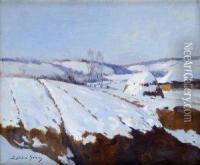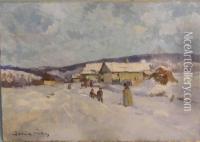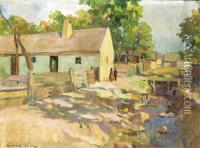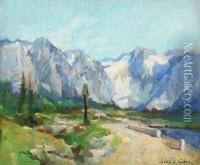Zorad Geza Paintings
Geza Zorad was a Hungarian artist known for his distinctive approach to painting, particularly his contributions to modernist and socialist realist styles throughout the 20th century. Born on February 22, 1911, in Hungary, Zorad developed an interest in art at a young age. His early life coincided with significant political and social changes in Europe, which later influenced his artistic themes and styles.
During his formative years, Zorad was likely influenced by the artistic environment of the Austro-Hungarian Empire, which included a rich history of painting and the visual arts. He studied at the Hungarian University of Fine Arts in Budapest, where he honed his craft under the guidance of esteemed professors and artists of the time.
Zorad's career began to take shape in the 1930s, a period when many European artists were grappling with the rise of authoritarian regimes and the looming threat of war. His work from this era often reflected the political tensions and the social dynamics of the time. As World War II unfolded, Zorad, like many of his contemporaries, had to navigate the challenges of creating art under oppressive political conditions.
After the war, Zorad's style evolved, reflecting the shifts in Hungarian art as the country became part of the Eastern Bloc under Soviet influence. He became associated with Socialist Realism, the officially sanctioned style of art in the communist countries, which focused on the glorification of the working class and the socialist state. Despite the constraints of the genre, Zorad managed to infuse his work with a sense of individuality and often included Hungarian cultural motifs.
In the post-war years, Zorad's reputation grew, and he became one of Hungary's prominent artists. His paintings were exhibited widely, both in Hungary and abroad, and he received several awards for his contributions to Hungarian art. Zorad's oeuvre includes a wide range of subjects, from landscapes and still lifes to portraits and genre scenes reflecting everyday life.
Geza Zorad passed away on November 24, 1984. His legacy is preserved in Hungary and the broader art world through his paintings, which continue to be studied and appreciated for their artistic merit and historical significance. Zorad remains an important figure in Hungarian art history, representing a bridge between traditional painting techniques and the ideological demands of 20th-century art movements.








